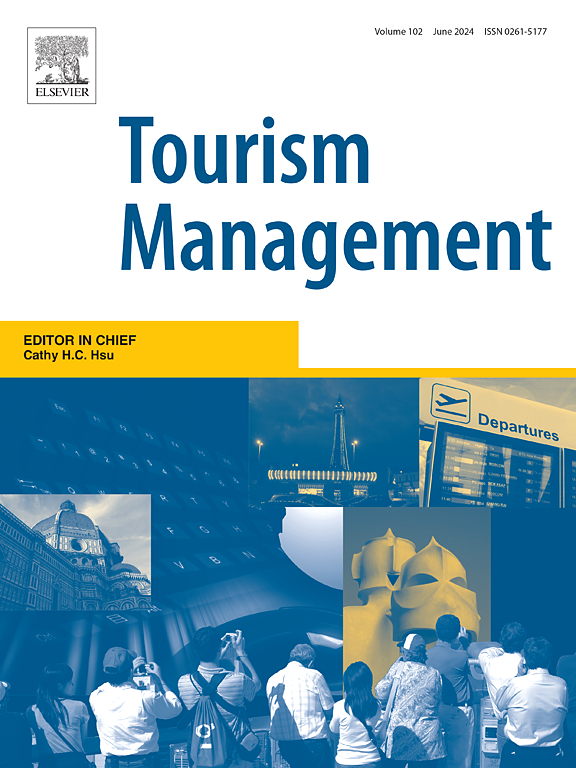Generative artificial intelligence in tourism management: An integrative review and roadmap for future research
IF 10.9
1区 管理学
Q1 ENVIRONMENTAL STUDIES
引用次数: 0
Abstract
Rapid technical advances have spurred the potential of generative artificial intelligence (GenAI) in various business settings. However, the tourism industry is in the early stages of understanding and applying GenAI, and comprehensive knowledge is needed. This paper presents a systematic review of the empirical literature, published between 2022 and 2024, related to GenAI in the business and tourism fields. Findings draw a detailed picture of the state of GenAI research. In total, 170 published articles are reviewed based on topics, theories, and methods. Three main topic clusters are identified: 1) antecedents of using GenAI; 2) impacts and applications of GenAI; and 3) technicalities of GenAI. Theoretically, most studies have borrowed foundations from other fields without substantial development. Methodologically, existing research—particularly in tourism—has tended to feature quantitative techniques. This research also compares business and tourism literature based on an antecedents, process and outcomes framework, outlining potential research gaps and opportunities. In addition to synthesizing the current research landscape, this paper presents a multidimensional framework (i.e., theories, contexts, characteristics, and methods – TCCM) that suggests multiple future research questions to inform GenAI studies in tourism.
生成性人工智能在旅游管理中的应用:综述与未来研究方向
快速的技术进步激发了生成式人工智能(GenAI)在各种商业环境中的潜力。然而,旅游业对GenAI的理解和应用还处于早期阶段,需要全面的知识。本文对2022年至2024年间发表的与商业和旅游领域GenAI相关的实证文献进行了系统回顾。这些发现详细描绘了GenAI研究的现状。本文将根据主题、理论和方法对170篇已发表的文章进行综述。本文确定了三个主要的主题聚类:1)使用GenAI的前因;2) GenAI的影响与应用;3) GenAI的技术细节。理论上,大多数研究都是借鉴其他领域的基础,没有实质性的发展。在方法上,现有的研究——尤其是旅游业的研究——倾向于采用定量技术。本研究还比较了基于前因、过程和结果框架的商业和旅游文献,概述了潜在的研究差距和机会。除了综合当前的研究景观外,本文还提出了一个多维框架(即理论、背景、特征和方法- TCCM),该框架提出了多个未来的研究问题,以指导旅游中的基因ai研究。
本文章由计算机程序翻译,如有差异,请以英文原文为准。
求助全文
约1分钟内获得全文
求助全文
来源期刊

Tourism Management
Multiple-
CiteScore
24.10
自引率
7.90%
发文量
190
审稿时长
45 days
期刊介绍:
Tourism Management, the preeminent scholarly journal, concentrates on the comprehensive management aspects, encompassing planning and policy, within the realm of travel and tourism. Adopting an interdisciplinary perspective, the journal delves into international, national, and regional tourism, addressing various management challenges. Its content mirrors this integrative approach, featuring primary research articles, progress in tourism research, case studies, research notes, discussions on current issues, and book reviews. Emphasizing scholarly rigor, all published papers are expected to contribute to theoretical and/or methodological advancements while offering specific insights relevant to tourism management and policy.
 求助内容:
求助内容: 应助结果提醒方式:
应助结果提醒方式:


